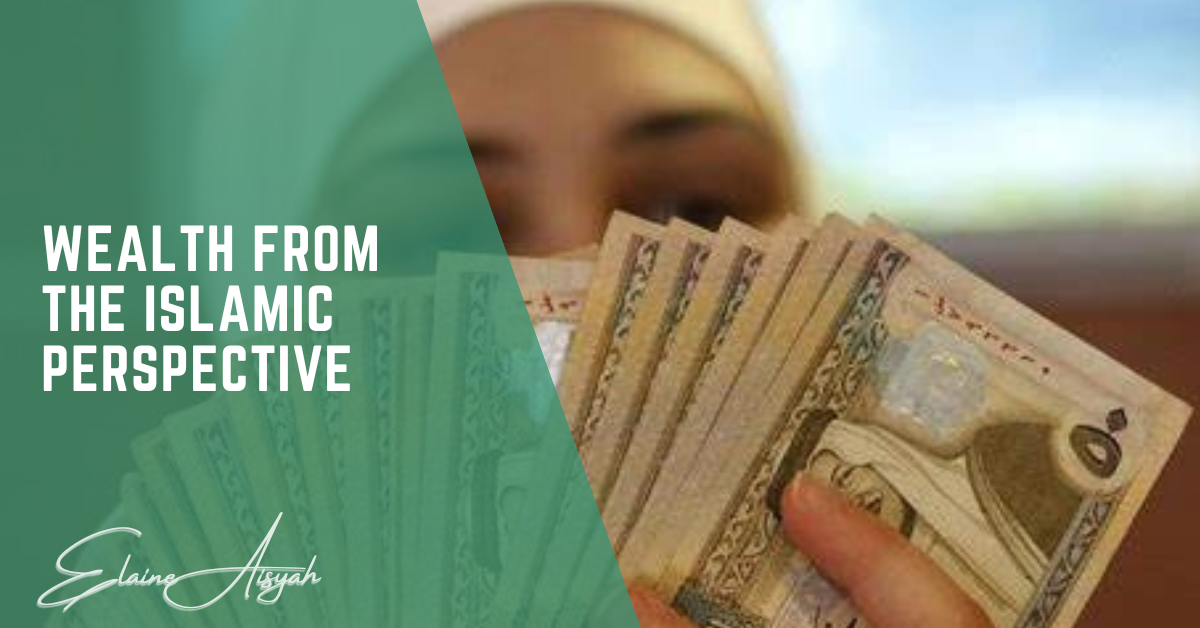What is Wealth? Wealth may be seen from various different perspectives. From the Islamic perspective, all wealth ultimately belongs to God and man is only a trustee.

The Qur’an says: “To Him belongs what is in the heavens and on earth, and all between them, and all beneath the soil” (Ta-Hā, 20:6).
The Qur’an further says: “…give them something yourselves out of the means which Allah has given to you…” it is mentioned in the Quran (al-Nur, 24:33). A Man’s role is as a trustee, holding the wealth on trust for Allah as evident in the Qur’anic verse: “We did indeed offer the Trust to the Heavens and the Earth and the Mountains; but they refused to undertake it, being afraid thereof: but man undertook it;- He was indeed unjust and foolish” (al-Ahzab, 33:72).
Islam adopts a middle path that regards money as something important and one of the pleasures of life, “Wealth and sons are allurements of the life of this world.” (Qur’an, 18:46), that should be used to help others and make others human beings happy and satisfied. “…but Al-Birr is (the quality of) the one who believes in Allah, the Last Day, the Angels, the Book, the Prophets and gives his wealth, in spite of love for it, to the kinsfolk, to the orphans, and to the Al-Masakin (the poor), and to the wayfarer, and to those who ask, and to set slaves free….” (Qur’an, 2:177)
However we are also reminded that money has another negative aspect that should be avoided, or otherwise, man will go astray “O you who believe! Let not your riches or your children divert you from the remembrance of Allah. And whoever does that, then they are the losers.” (Qur’an, 63:9)
The history of Islam abounds with examples of men who used their money to support their religion, the most important among them Abu Bakr Al Siddiq and Othman Ibn Affan (may Allah be pleased with them). For example, Othman Ibn Affan (may Allah be pleased with him), bought a well that was owned by a Jew who used to exploit people’s need for water. He purchased the well from the Jews and gave that away to Muslims for free. Abu Bakr spent most of his money supporting Islam, especially in its early days. In one instance, he paid money to set Bilal (may Allah be pleased with him) free, who was tortured by his heartless master for embracing Islam. This is why Omar Ibn Al-Khattab (may Allah be pleased with him) said “Abu Bakr is our master who set our master (meaning Bilal) free.”
However, it should be pointed out that Islam is not against having wealth or leading a comfortable life, but it seeks to instill in the Muslim’s consciousness the fact that earning money should never be an aim in itself. In other words, money should be one’s slave and not his master.

Therefore, there some rights associated with the wealth that the financial planner should understand and incorporate them as part of financial planning and enlighten his clients about them. It is important for new Muslims especially to understand the concept of wealth in Islam perspective, so to assist them in their financial planning and wealth management.
